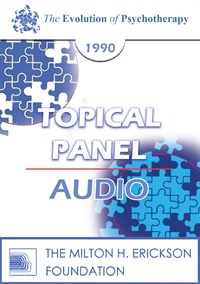EP90 Panel 06 - The Language of Human Facilitation - William Glasser, MD; James Hillman, PhD; Ernest Rossi, PhD; Paul Watzlawick, PhD
- Average Rating:
- Not yet rated
- Topic Areas:
- Topical Panels | Psychotherapy | Therapist Development | Mind-Body | Milton Erickson
- Categories:
- Evolution of Psychotherapy | Evolution of Psychotherapy 1990 | Pioneers in Couples and Family Therapy
- Faculty:
- William Glasser, MD | James Hillman, PhD | Ernest Rossi, PhD | Paul Watzlawick, PhD
- Duration:
- 59 Minutes
- Format:
- Audio Only
- Original Program Date:
- Dec 13, 1990
- License:
- Never Expires.
Description
Description: This conversation explores how the words we choose in therapy can shape the change process. Drawing inspiration from Milton Erickson, the panel reflects on the power of speaking the client’s language—whether through everyday words, poetic images, or scientific metaphors. From control theory to the language of biology, the discussion highlights how thoughtful, resonant communication can deepen understanding and open space for growth.
Moderated by Betty Alice Erickson-Elliott, MS.
Educational Objectives:
- To compare and contrast clinical and philosophical perspectives of experts.
*Sessions may be edited for content and to preserve confidentiality*
Credits
Handouts
| Timestamped Transcript (834 KB) | 19 Pages | Available after Purchase |
| Ericksonian Learning Snapshot (281.7 KB) | 3 Pages | Available after Purchase |
Faculty
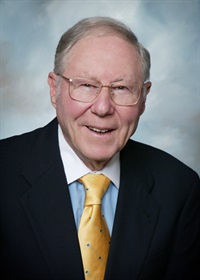
William Glasser, MD Related Seminars and Products
William Glasser, MD, who received his MD degress in 1953 from Case Western Reserve University was an American psychiatrist. William was awarded an honorary doctorate in human letters by the University of San Francisco. Founder and Director of the Institute for Reality Therapy, he was authoer and editor of ten books on the topics of reality therapy and education. He was also the developer of Choice Theory. His ideas, which focus on personal choice, personal responsibility and personal transformation, are considered controversial by mainstream psychiatrists, who focus instead on classifying psychiatric syndromes as "illnesses", and who often prescribe psychotropic medications to treat mental disorders.
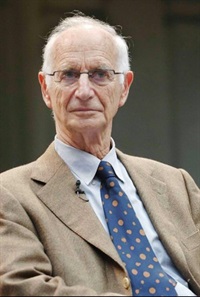
James Hillman, PhD Related Seminars and Products
James Hillman, PhD, who received his Ph.D. degree from the Univeristy of Zurich, has served as honorary secretary of the International Association for Analytical Psychology and for 10 years was Director of Studies at the C.G. Jung Institute in Zurich. He has written 12 books and was nomiated for a Pulitzer prize.
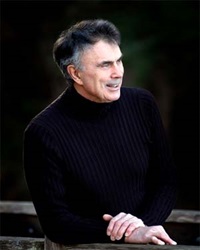
Ernest Rossi, PhD Related Seminars and Products
Ernest L. Rossi, PhD, is an internationally renowned therapist, teacher and pioneer in the psychobiology of mind-body healing. The author of more than 24 professional books, Dr. Rossi worked with Milton Erickson for eight years and co-authored three classic volumes on therapeutic hypnosis with him. Rossi has also edited four volumes of Erickson's Collected Papers and four volumes of Erickson's Seminars, Workshops and Lectures. He has been conducting research in the psychosocial genomics of ultradian rhythms and their relation to mind-body healing and psychotherapy for over three decades.
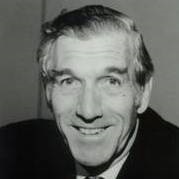
Paul Watzlawick, PhD Related Seminars and Products
Paul Watzlawick, received his Ph.D. from the University of Venice in 1949. He has an Analyst's Diploma from the C.G. Jung Institute for Analytic Psychology in Zurich. Watzlawick has practiced psychotherapy for more than 30 years. He was research associate and principal investigator at the Mental Research Institute. He was Clinical Professor at the Department of Psychiatry and Behavioral Sciences, Stanford University Medical Center. Watzlawick is a noted family therapist; he is recipient of the Distinguished Achievement Award from the American Family Therapy Association. Also, he is author, co-author or editor of eight books on the topics of interactional psychotherapy, human communication and constructivist philosophy.
He formulated five axioms. They are:
- It is not possible to not communicate. Every behavior is some kind of non-verbal communication.
- Every communication has a content. In addition, there is 'metainformation', which says how the communicator wants to be understood.
- All partners involved in a communication process also interpret their own behaviour during communication.
- Human communication involves both verbal and non-verbal communication. In addition to the spoken words, there are is also a non-spoken part (gestures, behavior, intonation..) which is part of the communication.
- Communication between humans is either symmetric or complementary. This is based on whether the relationship of those communicating is based on differences or parity.


